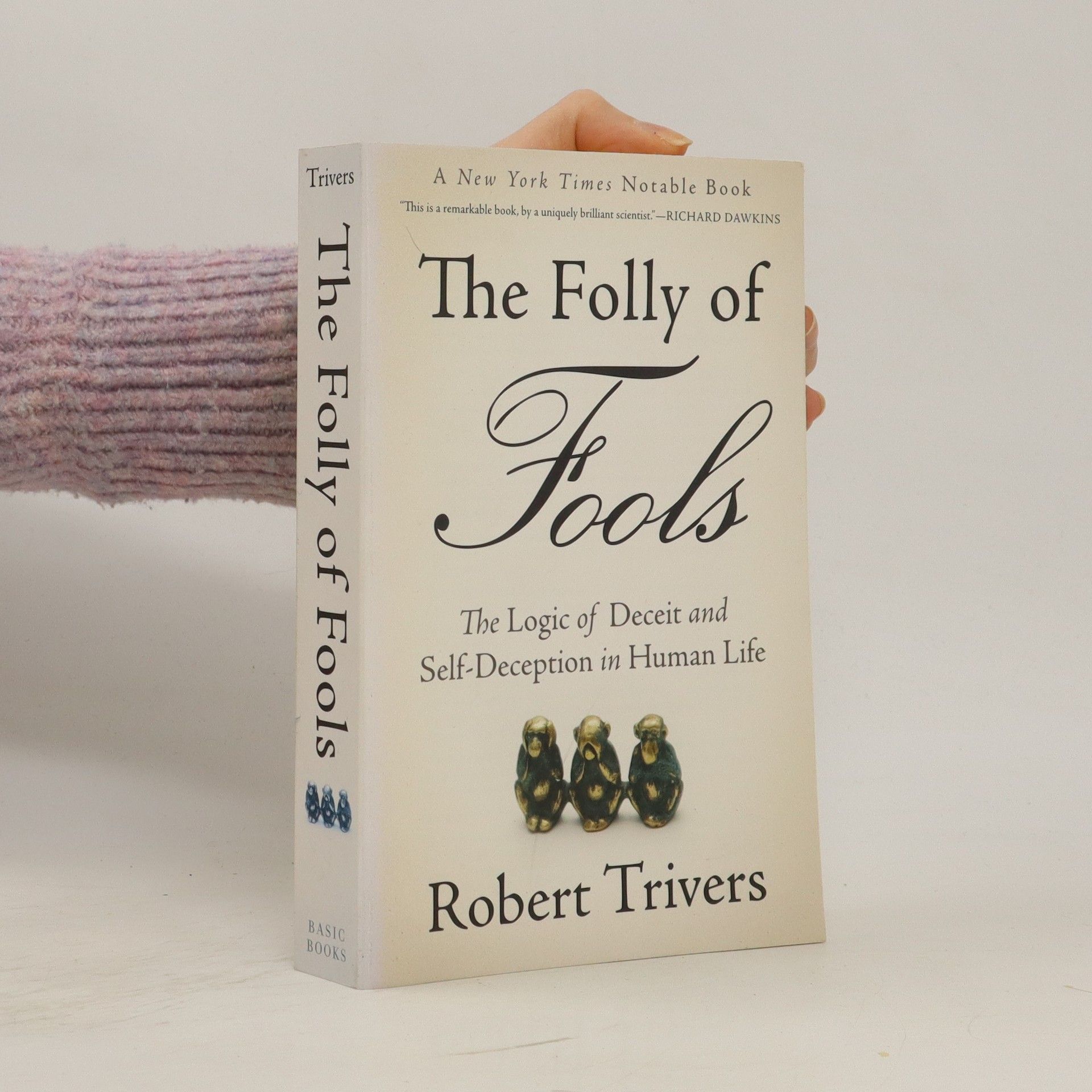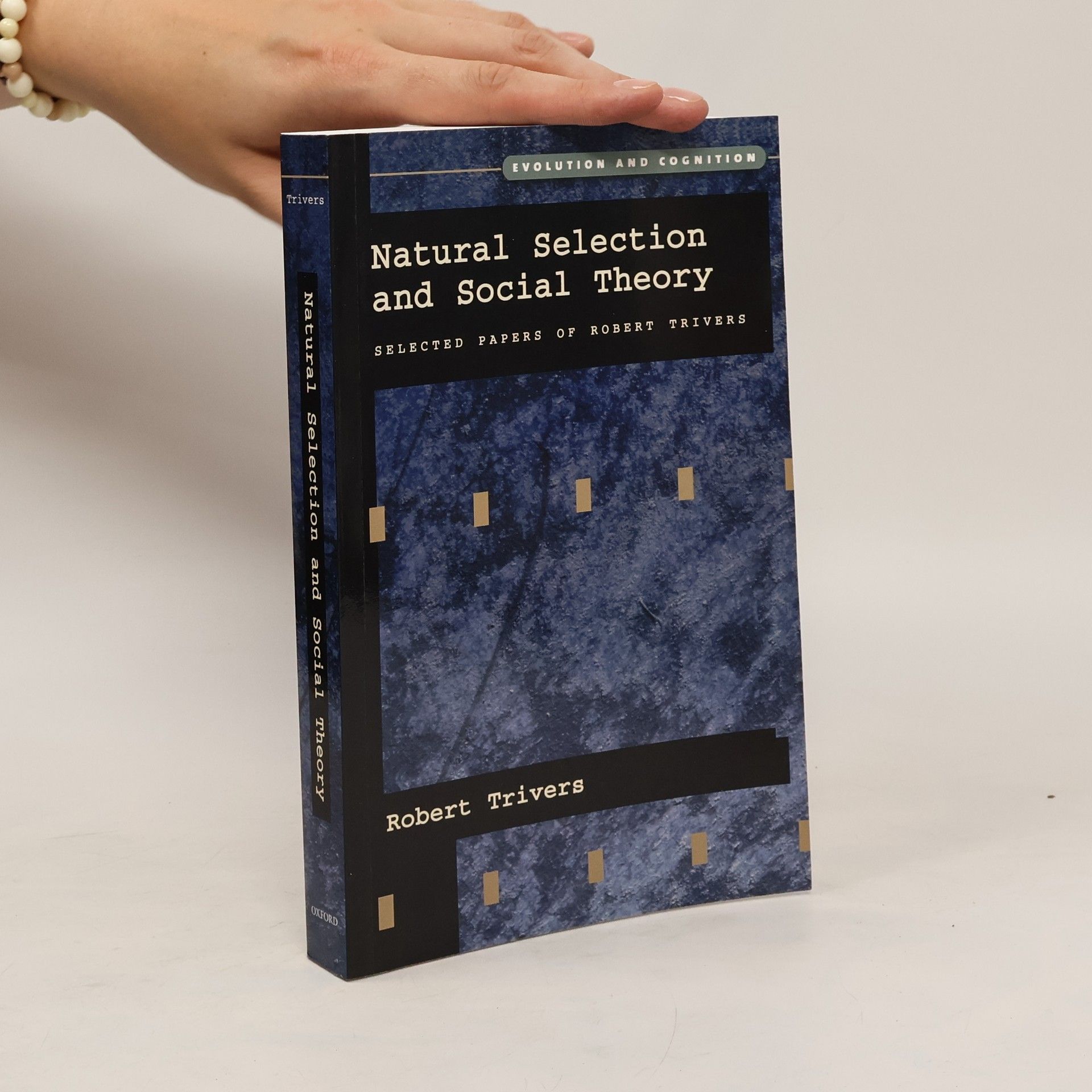Robert Trivers is a pioneering figure in the field of sociobiology. For Natural Selection and Social Theory, he has selected eleven of his most influential papers, including several classic papers from the early 1970s on the evolution of reciprocal altruism, parent-offspring conflicts, and asymmetry in sexual selection, which helped to establish the centrality of sociobiology, as well as some of his later work on deceit in signalling, sex antagonistic genes, and imprinting. Trivers introduces each paper, setting them in their contemporary context, and critically evaluating them in the light of subsequent work and further developments. The result is a unique portrait of the intellectual development of sociobiology, with valuable insights for evolutionary biology, anthropology, and psychology.
Robert Trivers Libri
Robert L. Trivers è una figura fondamentale della biologia evolutiva, che ha plasmato la nostra comprensione dell'evoluzione sociale. È rinomato per aver proposto teorie pionieristiche sull'altruismo reciproco, l'investimento parentale e il conflitto genitore-figlio. Il suo lavoro include anche analisi illuminanti sull'autoinganno e sul conflitto intragenomico. Il rigore analitico di Trivers e la sua profonda esplorazione delle dinamiche del comportamento sociale lo definiscono come un pensatore preminente nella teoria evolutiva.





The Folly of Fools. The logic of Deceit and Self-deception in Human Life
- 416pagine
- 15 ore di lettura
A New York Times Notable Book of 2012 Whether it’s in a cockpit at takeoff or the planning of an offensive war, a romantic relationship or a dispute at the office, there are many opportunities to lie and self-deceive—but deceit and self-deception carry the costs of being alienated from reality and can lead to disaster. So why does deception play such a prominent role in our everyday lives? In short, why do we deceive? In his bold new work, prominent biological theorist Robert Trivers unflinchingly argues that self-deception evolved in the service of deceit—the better to fool others. We do it for biological reasons—in order to help us survive and procreate. From viruses mimicking host behavior to humans misremembering (sometimes intentionally) the details of a quarrel, science has proven that the deceptive one can always outwit the masses. But we undertake this deception at our own peril. Trivers has written an ambitious investigation into the evolutionary logic of lying and the costs of leaving it unchecked.
Whether it’s in a cockpit at takeoff or the planning of an offensive war, a romantic relationship or a dispute at the office, there are many opportunities to lie and self-deceive—but deceit and self-deception carry the costs of being alienated from reality and can lead to disaster. So why does deception play such a prominent role in our everyday lives? In short, why do we deceive? In his bold new work, prominent biological theorist Robert Trivers unflinchingly argues that self-deception evolved in the service of deceit—the better to fool others. We do it for biological reasons—in order to help us survive and procreate. From viruses mimicking host behavior to humans misremembering (sometimes intentionally) the details of a quarrel, science has proven that the deceptive one can always outwit the masses. But we undertake this deception at our own peril. Trivers has written an ambitious investigation into the evolutionary logic of lying and the costs of leaving it unchecked.
Vida Indómita: Aventuras de Un Biólogo Evolutivo
- 290pagine
- 11 ore di lettura
Considerado por la revista Time uno de los científicos y pensadores más importante del siglo XX, Robert Trivers es una leyenda viva de la biología y las ciencias sociales. Sin embargo, a diferencia de otros científicos de renombre, Trivers ha estado entre rejas, en alguna ocasión hizo de chófer del líder de los Panteras Negras Huey Newton para ayudarlo a huir y fundó un grupo armado en Jamaica para proteger a los homosexuales frente a la violencia colectiva y los linchamientos. Con su inimitable voz, Trivers nos habla de la vida indómita que hay tras la ciencia revolucionaria y comparte aquí opiniones sobre los temas más dispares, desde el racismo en Norteamérica hasta la historia de la psiquiatría, pasando por quién mató a Peter Tosh, el heredero musical de Bob Marley. Salpicado de anécdotas sobre personalidades del ámbito científico como Richard Dawkins o Stephen Jay Gould, este libro interesará y entretendrá a cualquiera que sienta curiosidad por la ciencia, la condición humana o la naturaleza del genio creativo. “Quién hubiera imaginado que el pensador probablemente más original en teoría evolutiva haya tenido la extraordinaria vida que Robert Trivers cuenta en estas páginas. Trivers nos invita a un viaje delirante […] El resultado son unas memorias extraordinariamente sinceras y únicas de una vida de locos.” Richard Dawkins “Uno de los grandes sabios en la historia del pensamiento occidental.” Steven Pinker
Betrug und Selbstbetrug
- 528pagine
- 19 ore di lettura
Warum betrügen wir? Robert Trivers‘ provozierende Antwort: Lügen ist die erfolgreichste Form der menschlichen Kommunikation. Wir sind Betrüger. Wir betrügen unsere Partner, Freunde, Kollegen, Mitmenschen. Wir betrügen im Privaten und auf dem glatten Parkett der internationalen Politik - mit großem Erfolg. Aber vor allem betrügen wir uns selbst. Wir halten uns für klüger, schöner, besser, als wir wirklich sind. Und das ist auch gut so, sagt Robert Trivers. Denn je besser man sich selbst etwas vormachen kann, umso überzeugender lassen sich die Mitmenschen zum Narren halten. Nachhaltiger Selbstbetrug ist das beste Mittel zum Erfolg. Trivers hat eine allgemeine Theorie der Täuschung und Selbsttäuschung entwickelt, die auf den neuesten Erkenntnissen der Evolutionsbiologie gründet und erklärt, wie wir denken und handeln.